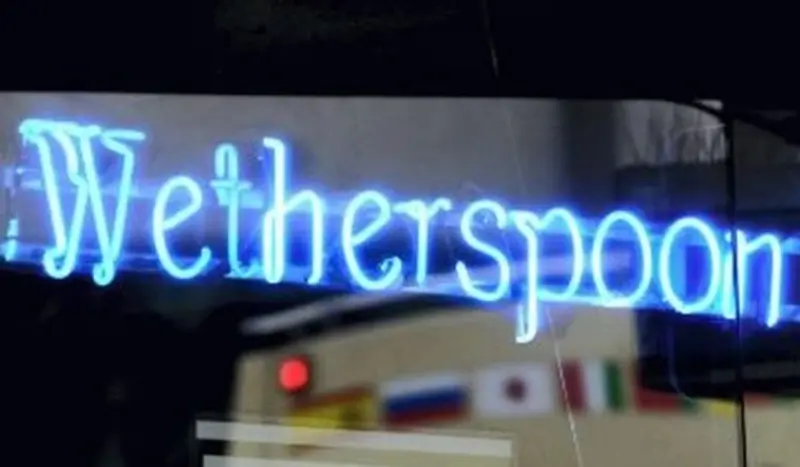
Shares in pubs operator JD Wetherspoon (JDW) cheapened 3.1% to 898p on Monday as investors digested news of a 22.5% year-on-year plunge in sales last Saturday.
Citing the weekend sales slump, pugnacious chairman Tim Martin (pictured below) lashed out at the press for what he claimed were ‘negative views’ about the risk pubs pose to exacerbating the spread of Covid-19.
In today’s update, JD Wetherspoon reported that it has had 32 million customer visits in the 10 weeks since 4 July in its 861 open pubs.
During this period, there have been 66 positive tests for Covid-19 among its 41,564 employees. 811 pubs have reported zero positive tests, 40 pubs have reported one, six pubs two, two pubs three and two pubs four.
The pub company was also at pains to point out that most of the reported cases have been mild or asymptomatic and 28 of the 66 employees have already returned to work, after self-isolating in accordance with medical guidelines.
PUB RISKS MISUNDERSTOOD, SAYS MARTIN
Renowned Brexiteer Martin insisted: ‘The situation with regard to pubs has been widely misunderstood. For example, professor Hugh Pennington, of Aberdeen University, has said, without scientific evidence, that pubs are “dangerous places to be” (Daily Express, 14 August).
‘This sort of negative view about pubs may have been fuelled by inaccurate press headlines.’
Martin continued: ‘The Daily Mail (11 September), for example, said “Britons have promised to run riot” during the weekend and referred to the situation as being like “the last days of Rome”.
‘In fact, trade was very quiet over the weekend, as the public weighed up the evidence about the alleged dangers of going out - Wetherspoon sales were 22.5% below the equivalent Saturday last year.
‘It is clearly not the case that pubs are “dangerous places to be”. There have been more positive cases at one farm in Hereford than at all Wetherspoon pubs - and over four times as many at one sandwich-making facility in Northampton.’
The Wetherspoon boss also referenced Swedish epidemiologist Johan Giesecke, who has said strong scientific evidence shows that handwashing and social distancing, as practised by most pubs, work.
Martin’s charge has invested around £15 million on comprehensive social distancing and hygiene measures; these include reducing capacity, spacing out tables, the installation of screens between tables and around tills, and an average of ten hand sanitisers per pub.
‘Bad decisions are built on false presumptions, like those of professor Pennington and the Daily Mail,’ said Martin.
Last month, JD Wetherspoon said 97% of its estate was now open and sales had gradually improved, with a rapid acceleration seen more recently aided by the Government’s Eat Out To Help Out scheme.
One of JD Wetherspoons’ competitive advantages during this pandemic is the fact the company operates from larger sites than its peers. Along with accommodating landlords and local authorities with regards to utilising more outside spaces, this has helped to entice customers back into its pubs.






